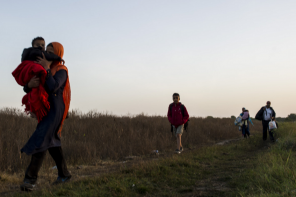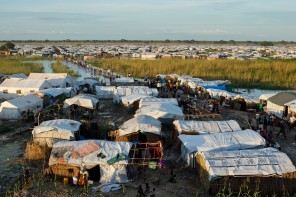It’s the political season here, and so I have to admire the chutzpah of Paul Collier, who had an op-ed in today’s NYT.
Let’s just say Collier, for those of you who didn’t have to suffer through international relations courses, is not known as a fuzzy-wuzzy pro-aid guy. His tome Beyond Greed and Grievance is like a narrative statistics report: numbers, numbers, numbers illustrating what is (statistically) true about conflict, poverty and the like, rather than what seems to be the case from theories and anecdotes. There are no aid-cheering conclusions in his work (and nor are their aid-bashing ones).
The point is, he’s pretty a-polemical, if not a-political, and either is a welcome but rare thing as soon as you start talking about aid. So for a guy as understated as Collier, this came as a shock:
The big difference between a poor Asian household and an equally poor African one is hope, not necessarily for the present generation of adults but for their children.
I have to assume it’s not a tacit endorsement of Barack Obama for president, but in this season, language like that stands out. So does the argument. In discrete numbers, he writes, China and India have more poor people than Africa. But their incomes are rising faster and with more certainty, so getting African incomes up should still be the focus of aid conversations, and of the UN General Assembly, which opens today.
What we need to achieve that, he says, is not necessarily more aid dollars (there’s a critique of the Millennium Development project in here, for the interested, and of the “American biofuels scam”). We need–theyneed–a little…hope.
Hope makes a difference in people’s ability to tolerate poverty; parents are willing to sacrifice as long as their children have a future. Our top priority should be to provide credible hope where it has been lacking.
There’s something about the wonky language of that sentence, but its utterly poetic object: provide credible hope. top priority. Hope doesn’t usually get much play in conversations that sound like that.
Collier continues with important policy points–where was the UN after the Mauritania coup? Why has it let Africa imitate the folly of some European and American agriculture policies? What happens to market access now that Doha talks have collapsed? Etc.
All great points. But the most interesting one may be, how will our answers to those questions change if we start the conversation by saying, “Above all, the outcome must give the people hope?” I’m not sure, but I like the idea.



Thanks for sharing. It reminded me of one of the best books I’ve read in the last several years–a different topic–but the same theme: The Anatomy of Hope by Jerome Groupman. Real hope makes a difference in many circumstances.